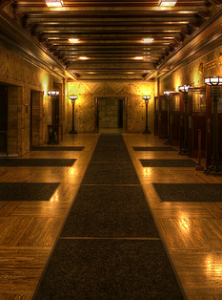 Seamless, my passage through a day and from day to day: from dawn to dusk, from sleep to waking. Though sleep may be interrupted, the story of life, this life, my life continues uninterrupted.
Seamless, my passage through a day and from day to day: from dawn to dusk, from sleep to waking. Though sleep may be interrupted, the story of life, this life, my life continues uninterrupted.
From sand glazed by sun to the wet edge of sand (“in nature there are few sharp lines” writes A.R. Ammons in “Corsons Inlet”) where the thinnest sheet of water spreads over the feet, to full immersion in the Atlantic Ocean and back to the beach towel, the chair, the novel; from house to yard, empty wallet to loaded, stained teeth to polished, one motion.
Yes, time, my time, is calendared, gridded: slots for waking and sleeping, exercising and eating, teaching, grading, meeting, reading, watching, sitting (to meditate and pray, to receive and send), walking (down the hall, down the stairs, across the road, around the circle led by a dog), and lying down.
I move seamlessly from one grid to another: the grid of the academic year, the grid of the Jewish calendar, the grid of the American calendar, the grid of broadcast dayparting, the grid of medical care.
This time, my time, my story: it goes on, unbound, uninterrupted, forever. Until it doesn’t.
Just ask the sons of Korah. Yes, I know, we have met them before, we have leaned into their psalm, the psalm for Monday. But Monday follows Monday follows Monday. So, we meet again (and again).
And what do they have to say today? Space comes before time.
There is a place, the city of God, they call it in Psalm 48. Splendid and sublime, they call it. On God’s mountain, God’s city. In God’s city, God’s temple. In God’s temple, a place within a place within a place. At the center of the place within a place within a place, we meditate. Meditate on Your kindness.
Inside, inside, the psalmist speaks to, not of God. That’s what the pronouns tell us: Her citadels become Your temple. What do the sons of Korah know? Moving within creates the possibility for intimacy, immediacy.
And, because the sons of Korah are human, what else can they do, upon encountering God’s presence in this place, but try to expand God’s temple? Expand until it “reaches the ends of the earth,” they say, so that others may stand or sit and meditate within it, so that others may come to know and praise God.
But it can’t be enlarged. And they know it. How do we know they know? Because they try so hard to convince us that the limits of space can be overcome.
“Walk all about Zion, encircle her,” we are instructed as the psalm turns toward its conclusion. “Count her towers, review her ramparts, scan her citadels.” The temple and the city in which it stands are not boundless. Its walls do not contain this planet, let alone this galaxy, or the more than a hundred billion galaxies in the observable universe.
Count, review, scan: know this place. This place, its modest measure of earth. This temple, this particular place, the dwelling place of God on earth. The only way to defeat the force or forces that will destroy it: Mark and memorize its features. Turn it into time.
This Body, this specific body: scanned (CT, MRI), counted (its chemistry, its mass), reviewed (notice the long scar—its seam—that runs the length of the abdomen).
And the surgeon (who sings his own songs of praise) says, the simple operation first. Then, if necessary, we’ll discuss the benefits of another, a much bigger deal. The odds are small that will be necessary.
The scans, the lab work, the statistics, the collective intelligence and experience of a good physician, radiologist, oncologist, surgeon: as certain and reassuring as they can be, given the information they are capable of gathering up to this point.
The cellular picture, however, will be revealed only later. After.
For a day, I could see it: the tear in the fabric—surgery, a small cut underneath the ribs—the beginning of the abrupt ending of the story, my story.
Irrational to think the worst. Yet . . .
What do the sons of Korah know? I am a son of Korah; I am author of this psalm. Presence contains absence; intimacy contains distance; life contains death; wholeness contains brokenness: these are the names of God.
What do the sons of Korah know? Fear. Irrational to think the worst. And too easy. Not hard enough.
Space dissolves into time.
Tell [Zion’s] story to later generations;
tell of our God who will guide us forever.
Forever: how clever, our invention. Intended to comfort. A lie.
But that’s too easy, dismissing forever as a lie.
What does it take to know what the sons of Korah know? “What we once heard we now have witnessed.” That’s what they say after seeing for themselves the defeat of those who conspire against God.
What do the sons of Korah know? God will guide us forever. Did they witness this? Intuit it? If and when I witness that, I will tell its story, the story of continuity, seamlessness, in whatever way I can to whoever will listen.
Richard Chess is the author of three books of poetry, Tekiah, Chair in the Desert, and Third Temple. Poems of his have appeared in Telling and Remembering: A Century of American Jewish Poetry, Bearing the Mystery: Twenty Years of IMAGE, and Best Spiritual Writing 2005. He is the Roy Carroll Professor of Honors Arts and Sciences at the University of North Carolina at Asheville. He is also the director of UNC Asheville’s Center for Jewish Studies.











